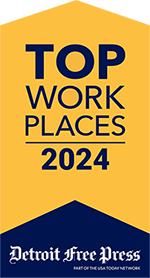Today’s corporate environment commonly experiences both external and internal disruptions, ranging from natural disasters to organizational changes. These challenges impact business operations and employees’ mental and emotional health. Organizations must build resilience to adapt to and recover from these disruptions effectively.
Trends indicate a significant increase in incidents impacting workplaces: workplace deaths increased by 16%, downsizing events surged by 277%, and workplace violence and threats rose by 89% from 2021 to 2023 (R3). These figures demonstrate the growing complexity of crises that companies must navigate and the importance of mitigation efforts, emergency preparedness, and post-crisis incident management.
R3 is a crucial ally for businesses in proactively preparing for and addressing these disruptions. Specializing in the behavioral health impacts of crises, R3 offers tailored support to assist organizations and their employees during tough times. Their services prioritize employee wellbeing, guaranteeing emergency management support to effectively navigate and recover from crises.
With an in depth focus on mental health and emotional support, R3 enables organizations to cultivate a resilient culture capable of withstanding disruptions and emerging stronger. This strategy is critical for companies seeking to preemptively develop contingency plans to sustain a stable and supportive working environment amidst increasingly frequent disruptions.
Executive Dilemmas in the Face of Disruption
For leaders, the responsibilities can be overwhelming. In today’s fast-paced corporate world, executives grapple with many dilemmas when disruptions unfold. Leading while navigating grief, disbelief, and fear after a traumatic event is extraordinarily difficult. The stakes are high, encompassing reputational risks, potential dips in employee morale, and formidable legal challenges for those caught unprepared. The aftermath of organizational changes, particularly, lays bare the complex psychological challenges employees face, often leading to a silent epidemic of unseen trauma in the workplace.
Reputational Risks and Morale Decline
Imagine a company facing a significant data breach. The immediate fallout damages customer trust, but the internal impact on staff morale is huge. Employees question the company’s competence and job security, resulting in a noticeable dip in engagement and productivity. Additionally, those employees who were involved in the data breach are navigating guilt, professional reputational damage, and fear of losing their jobs. This scenario illustrates how quickly things can spiral when crisis communication is mishandled and affects not just external perceptions but the heart of an organization – its people.
Psychological Fallout of Organizational Changes
Consider a tech firm undergoing sudden downsizing. Amid the chaos, a project manager finds her team cut in half, with the remaining members disoriented and fearful. This hypothetical story of a manager striving to keep her team motivated indicates the deep psychological toll such changes can take. The ripple effects of restructuring and downsizing extend beyond immediate job losses, embedding a culture of insecurity and stress that can hinder long-term recovery and growth. Also called Survivor Syndrome, those left after a downsizing incident “suffer from increased stress, guilt or mistrust in management.”
The Reality of Unpreparedness
PwC’s Global Crisis and Resilience Survey 2023 revealed a gap between the perceived importance of resilience and actual preparedness. While 89% of executives rate resilience as a top priority, 96% of organizations have faced disruptions in the past two years, with 76% reporting a medium-to-high impact on operations. Furthermore, 31% admit that building a skilled team is a significant hurdle to establishing a resilience program, highlighting a widespread struggle to find comprehensive solutions.
The Silent Epidemic
Unseen trauma in the workplace often goes unaddressed, with the long-term effects of events like robberies or medical accidents underestimated. For example, after a seemingly minor robbery, employees might experience lingering anxiety and fear that impacts their ability to work effectively. Such trauma can remain hidden without adequate support, eroding workplace morale and productivity.
These challenges demonstrate the critical need for executives to partner with experts like R3, who offer proactive strategies and reactive solutions to foster resilience. “The question isn’t will a crisis happen, but when will it happen, how long will it last, and how many other crises will happen alongside it?” – Jeff Gorter – Vice President of Crisis Response Clinical Services
Organizations can navigate disruptions more effectively by prioritizing employees’ psychological wellbeing and preparing comprehensively for potential crises to safeguard their reputations and people. As both a consulting partner and a response expert, R3 provides the expertise and customized resources necessary to ensure support is there when needed.
Disruption Response and Recovery vs. Crisis Management: Understanding the Differences
Employee mental health is not just an aftermath concern but a pivotal aspect of crisis resolution and organizational resilience. It is R3’s belief, based on 35+ years of experience, that it is not possible to have business recovery without human recovery first. R3’s Disruption Response and Recovery services stand distinct from traditional critical event management efforts by focusing on the psychological wellbeing of the workforce during and after disruptive events.
Here’s how R3’s specialized offerings set a new standard for handling workplace disruptions:
Behavioral Health Focus: R3 champions psychological support and mental health counseling to support employee wellbeing. By customizing interventions, R3 addresses the nuanced emotional and cognitive needs of individuals affected by crises, going beyond generic crisis situation protocols.
Business Continuity Plans: R3 commits to the long-term wellbeing of individuals and the organization. Extending support beyond the immediate crisis ensures a sustained recovery that fosters organizational strength and employee confidence in the face of potential threats.
Employee-Centric Planning: Understanding that each employee’s reaction to trauma is unique, R3 designs response plans that prioritize mental health as a key to organizational recovery. This focus ensures that recovery strategies are inclusive and responsive to the workforce’s diverse needs.
Expertise in Behavioral Health: With a seasoned crisis management team, R3 brings evidence-based practices into the core of crisis response. This expertise guarantees that recovery efforts are both empathetic and effective, aiding resilience in a scientifically supported manner.
Cultural and Generational Sensitivity: Recognizing the varied impact of work trauma across different cultural and generational lines, R3’s services adapt to meet these diverse needs. This sensitivity is crucial in today’s global and multi-generational workplace environments, ensuring support mechanisms are as inclusive as they are effective.
In contrast, broader crisis management plans often center on maintaining operational continuity, protecting assets, and minimizing financial losses. While these elements are undoubtedly important, they can sometimes overshadow the human aspect of crisis scenarios, leaving emotional and psychological impacts insufficiently addressed.
R3’s methodology demonstrates a comprehensive understanding of the many ways disruption can happen in the workplace. It offers a blueprint for executive leadership to navigate these challenges with a balanced focus on organizational and employee wellbeing. This approach aids in immediate recovery and builds a foundation for a more resilient and empathetic corporate culture, aligning with modern workplace support and transparency expectations.
– Jeff Gorter – Vice President of Crisis Response Clinical Services“We come at it from a strengths-based perspective. We recognize that most people will respond and do well with this approach. Research supports that resilience is the typical trajectory. However, that does not mean it is easy. At R3, we aim to provide essential psychological care and normalize the reactions they are having. If I were to boil it into three things, when we respond to a disruptive event, we are looking to provide ventilation, validation, and creativity. Ventilation to allow those impacted by the event a safe space to talk about what they have just gone through. Then we validate the reactions they are talking about. I felt scared, angry, confused, shocked. We help them understand those are the understandable, normal parts of this highly abnormal, unexpected situation. And finally, creating a narrative helps them feel like they have got some control over again. ”
Redefining Crisis Management: Bridging Operational Needs with Behavioral Health Support
Traditional crisis management often emphasizes operational and tactical concerns. These strategies primarily focus on maintaining business continuity, protecting assets, and managing a crisis’s immediate logistics. While implementing business continuity and workplace disaster recovery plans is crucial, this approach sometimes overlooks the profound emotional and psychological impacts on employees, treating them as secondary considerations.
Operational and Tactical Focus: This approach aims to rapidly stabilize situations and return to normal operations, stopping most efforts once the crisis appears resolved. However, the emphasis on swift stabilization and asset protection can sometimes neglect the deeper, more lasting effects on those most vital to the organization: its employees.
Organizational-Centric Priorities: Broad crisis management frameworks often prioritize the organization’s overall wellbeing, preserving the company’s reputation and minimizing financial repercussions. While these objectives are undeniably important, they can lead to a generalized response that may only partially cater to the diverse needs within the workforce.
Diverse Expertise: Diversity efforts are driven by a multidisciplinary team that includes risk managers, legal advisors, and communications staff. However, this broad expertise may require more specialized behavioral health knowledge, which is crucial to addressing crises nuanced emotional aftermath.
Generalized Response Protocols: Standard crisis management protocols are designed to be broadly applicable, offering a one-size-fits-all solution that may not resonate with or adequately support all organizational demographics.
Contrasting this with R3’s approach highlights a critical gap in traditional crisis management: the need for a more inclusive, human-centric model. R3’s services address operational and psychological needs during a crisis with targeted support for those affected. This dual focus on emotional and operational recovery advocates for a redefined approach to crisis management that equally prioritizes employees’ wellbeing as it does organizational resilience.
R3 champions a model of crisis management that integrates behavioral health expertise into the heart of its response efforts, acknowledging the lasting impact disruptions can have on individuals. By doing so, organizations are fortified against future challenges and can build a culture of resilience and empathy. This holistic approach is beneficial and essential in today’s workplace, aligning with evolving expectations for transparency, support, and wellbeing in adversity.
Future-Proofing Your Organization with R3: Case Studies and Success Stories
R3’s crisis response teams offer a strategic advantage in navigating workplace disruptions. Examples include the following successful case studies:
Capitol Breach Response
When violence shook the U.S. Capitol on January 6, 2021, R3 promptly deployed Disruptive Event Management (DEM) to those affected. Counselors arrived by January 12th, and 700 individuals received crucial support through management consultations, group sessions, and virtual listening sessions over 64 days. This response highlights R3’s capacity for quick, empathetic action in the face of workplace violence, aiding recovery and reinforcing workforce resilience.
Sandy Hook Shooting
The Sandy Hook tragedy‘s impact reached far beyond the immediate location, affecting employees at an EAP call center near the school. R3 recognized the broader trauma and responded by setting up safe spaces at the call center for employees to process their emotions with professional support. This intervention showcased R3’s understanding of trauma’s ripple effect and commitment to comprehensive community and workplace healing.
Tohoku Earthquake and Tsunami
The Tohoku disaster in Japan presented unique challenges, notably for a major airline operating flights between the U.S. and Japan. R3 provided expert guidance to those affected by updating safety information and addressing concerns about radiation exposure and general safety. By offering direct support at Narita International Airport, R3 ensured the airline’s critical missions continued and outages mitigated, highlighting the importance of an adaptable and informed response team in global disaster scenarios.
These case studies illustrate R3’s ability to navigate the intricate dynamics of diverse crises. From handling the aftermath of violence and community trauma to supporting operations amid natural disasters, R3’s behavioral health expertise is crucial in modern crisis management.
Proactive preparation and a flexible approach to emotional and operational recovery are essential, positioning R3 as a vital partner for organizations to foster resilience and a culture of care.
Building Resilience: A Comprehensive Approach to Effective Crisis Management
Navigating workplace disruptions demands a sophisticated approach, focusing on employees’ psychological wellbeing as a cornerstone of resilience and recovery. The current landscape of workplace disruptions—from natural disasters and pandemics to significant organizational changes and cyberattacks—demonstrates the need for an immediate response that addresses the immediate and long-term potential impacts on the workforce.
Key Takeaways:
- Advanced planning and recovery efforts must prioritize employees’ mental health.
- A holistic approach is essential to address the variety of workplace disruptions.
- R3 is a strategic ally, offering comprehensive solutions for crisis management.
- Executive leadership must collaborate with experts like R3 to create a strategy combining empathy and operational effectiveness.
R3 provides customized, evidence-based solutions for crisis management, from proactive preparation to post-event recovery. By forging a partnership with R3, senior management can balance empathy and operations when navigating the complexities of workplace disruptions.
Prepare for workplace disruptions and effective emergency response with R3’s expert support. Contact us today for DEM solutions prioritizing your team members’ wellbeing and resilience.







